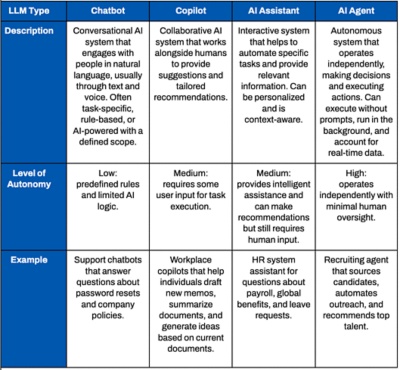In this article we discuss:
As AI systems become more sophisticated—capable of learning, memory, and acting independently to complete tasks—we are presented with new opportunities to enhance how work gets done within our organizations, especially our understanding of individual roles, their specific tasks, and how to personalize experiences.
We conducted a global study revealing that 83% of professionals familiar with AI believe it will augment human capabilities, leading to increased productivity and new forms of economic value. This sentiment underscores a growing recognition that the future of work lies in how we use AI to elevate human potential.
One of the most exciting aspects is the evolution of agentic AI, commonly referred to as AI agents. In this article, we dive into AI agents, exploring what they are, how they’re reshaping the future of work, and how leaders should be thinking about leveraging them in their organizations.
What Are AI Agents?
Let’s start by defining AI agents. AI agents are systems that perceive details of the surrounding environment, process and reason the next steps, and execute on those steps to achieve specific goals. They can even learn from their experiences, storing those learnings in memory to improve future iterations.
This technology allows us to move beyond analyzing data and making predictions to executing tasks autonomously, combining agents and people to fulfill complex processes. It enables enterprise technology to anticipate user needs and proactively completes tasks.
For users of enterprise systems, this means a simple, personalized experience. Behind the scenes, AI agents break down complex processes, consider individual context, and coordinate tasks to solve challenging business problems. This level of personalization is unprecedented, adapting to user expertise and specific organizational needs. These capabilities empower us to unlock solutions never before possible.









